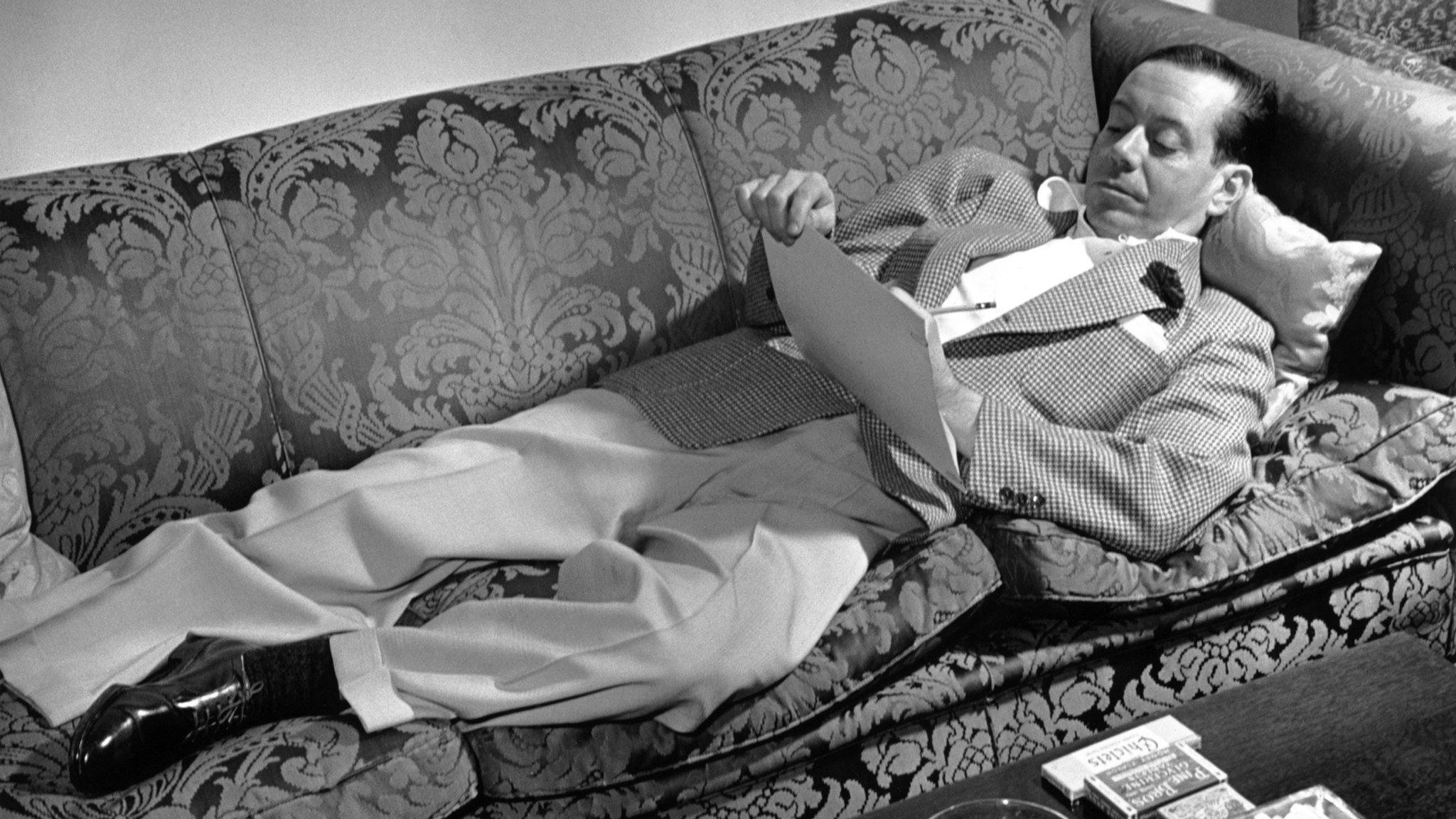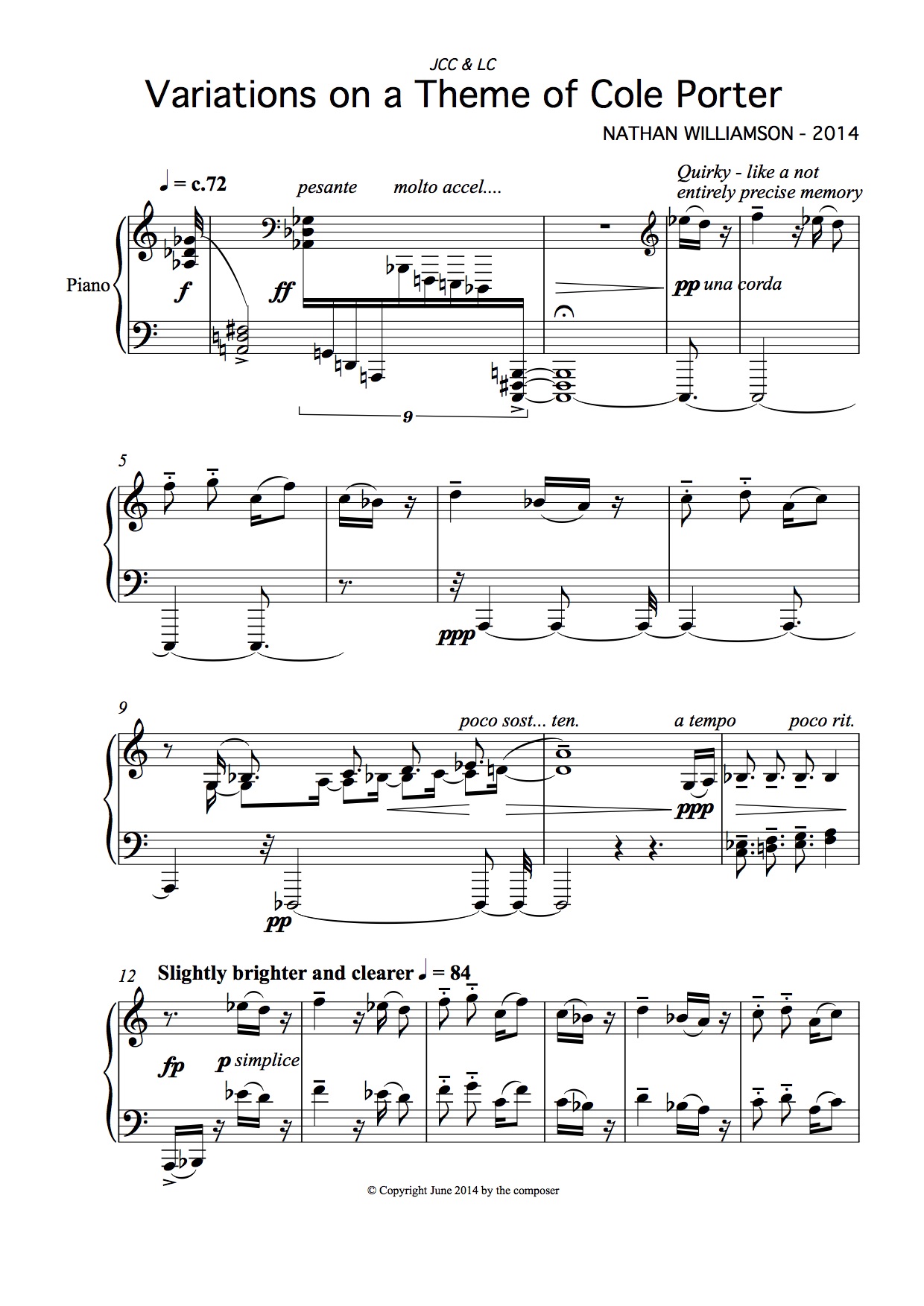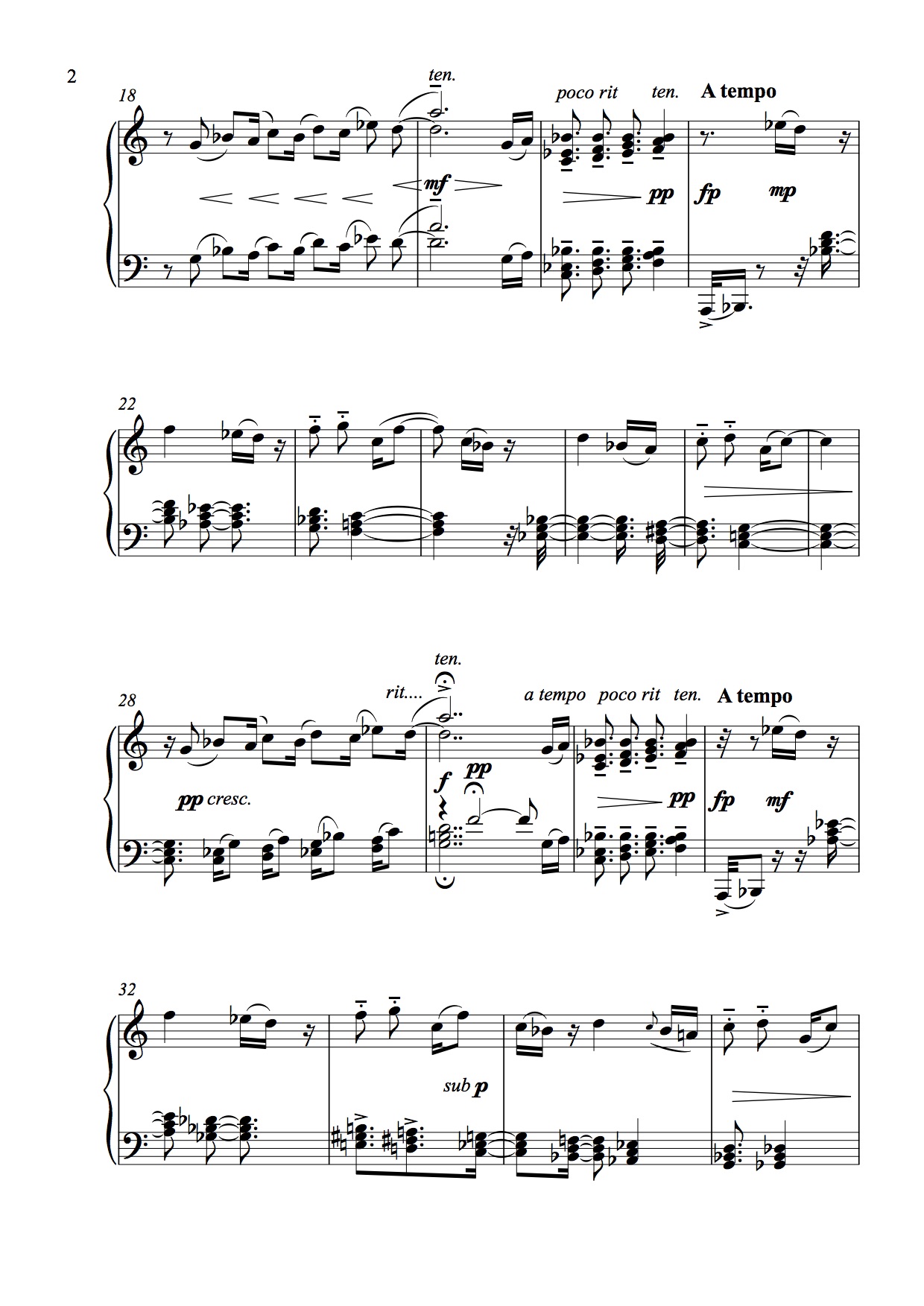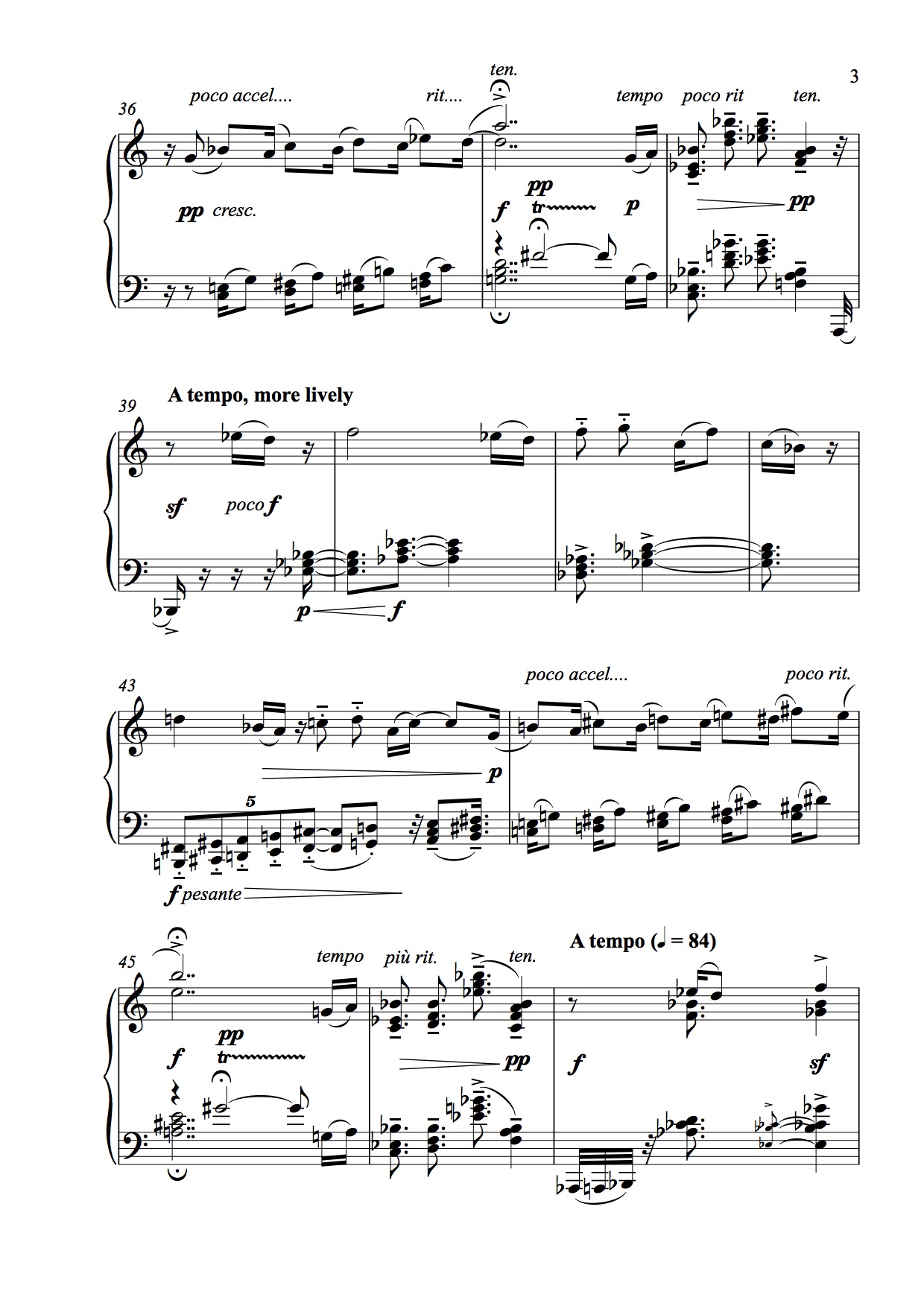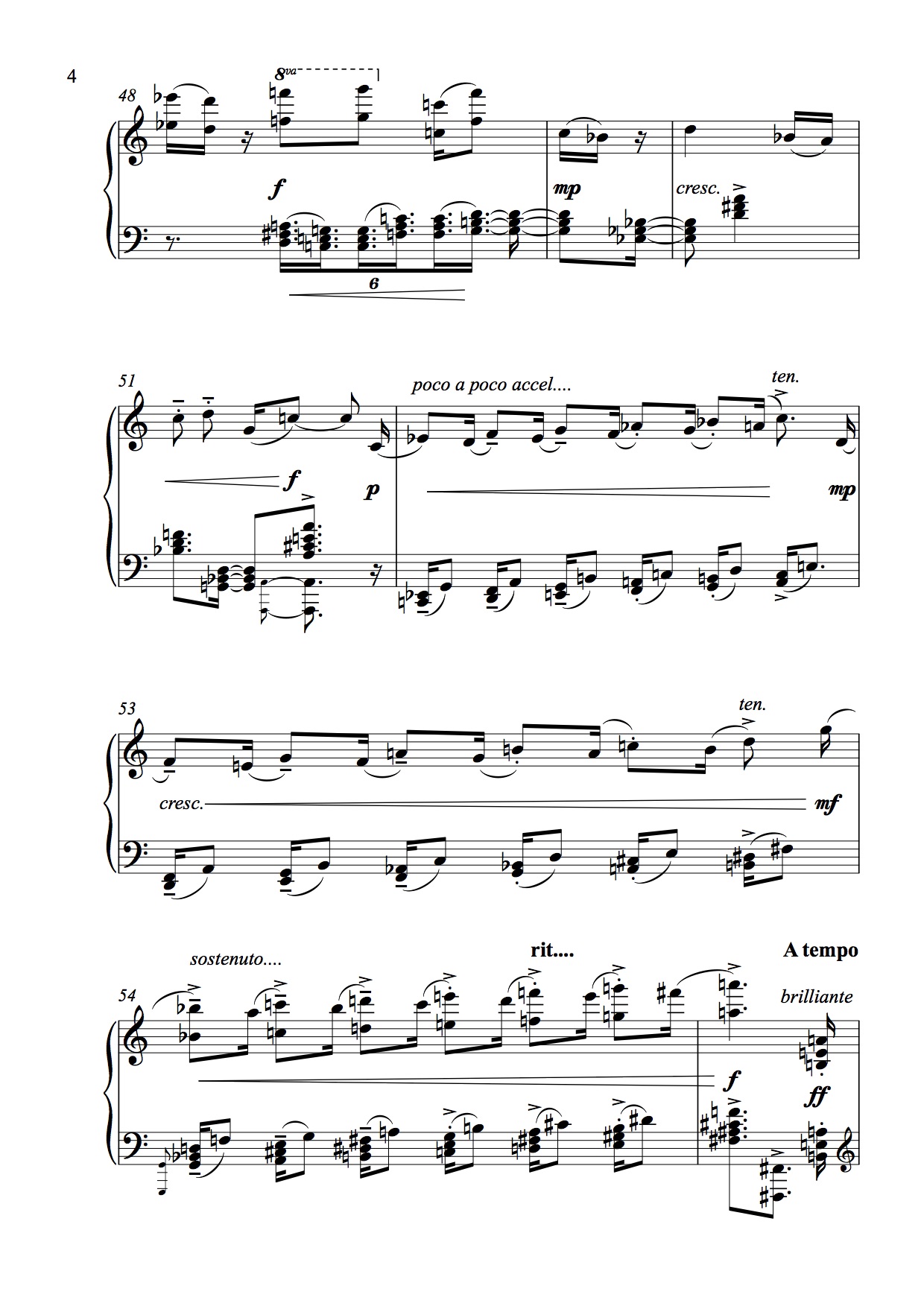I hate parading my serenading
As I’ll probably miss a bar,
But if this ditty is not so pretty
At least it’ll tell you how great you are… You’re the Top!
Commissioned as a 40th wedding anniversary present, this piece is one of celebration, freedom, life, colour and contrast – but at the same time is not relentlessly cheerful (any more than a 40 year marriage will have been!) The Cole Porter song was one of the couple’s favourites.
I decided rather than recognisably alter the melody, as in traditional, Classical variations, I would deconstruct the theme as an abstract object and ask ‘questions’ of it – you’ve done this once, but if you did it again where might you end up…?; if you hadn’t done this, would you have done this…?; did you try this instead…?
I also take patterns of notes in the music and treat them out of the composer’s context – for example using intervals literally rather than in a tonal framework. These are the sorts of things all composers do in some way or other – although my music is naturally very different from Porter’s I think some of these playful spin-offs would have appealed to him.
The work is free, rhapsodic, rather like a written down improvisation, to be performed with panache and a carefree spirit. The rhythmic language, in particular, unless specified otherwise, tends towards the spontaneous rather than the precise. The sometimes complex, polyrhythmic notation aims at representing rhythmic freedom, rather than anything overly precise or mechanical. The performer should always think in big shapes and gestures.
The piece falls into three main sections. Firstly, a presentation of the theme, which comes into focus gradually, growing more confident. The second section is the central body of the work and itself comprises four variations – some rather hefty, dark music; a more lyrical and romantic passage, statements of the famous syncopated ‘riff’ from Porter’s theme over a ground bass, and then a recap of the first variation. The final section is a sort of finale-coda, an increasingly manic, virtuosic and intense improvisation of abstract gestures, before a climax and a subsiding into the distance. The closing pages witness repeated fragments of the theme gradually dying away, interspersed with random themes from earlier in the piece. In a mirror image of the opening, the music breaks down and is left as a hazy memory.
Browse:
Browse the opening pages of the printed score. To purchase a copy please email [email protected]
Back to list of works
